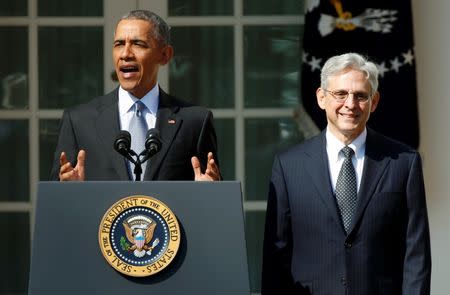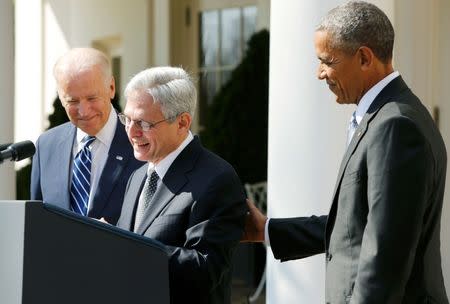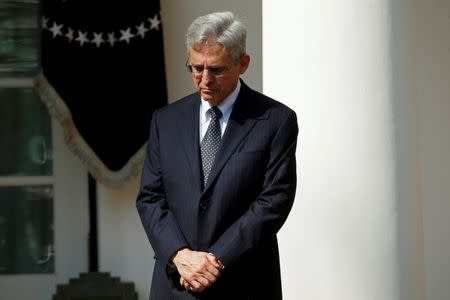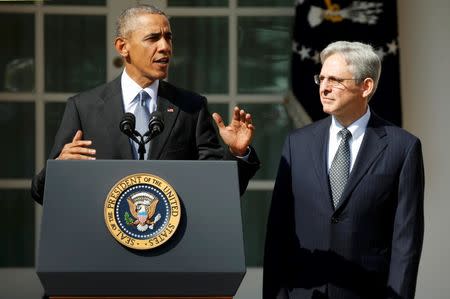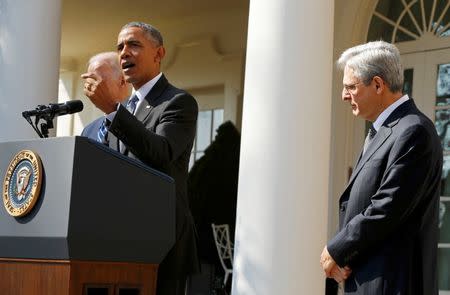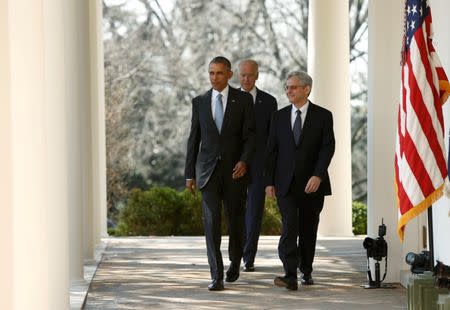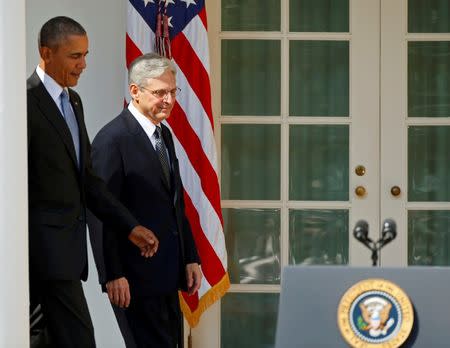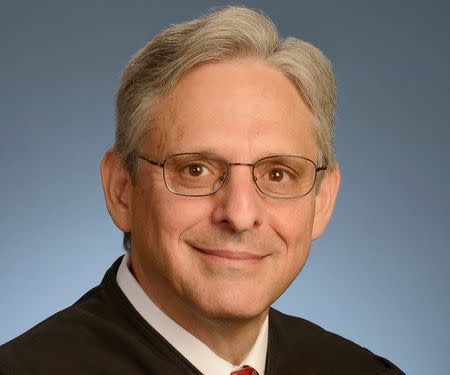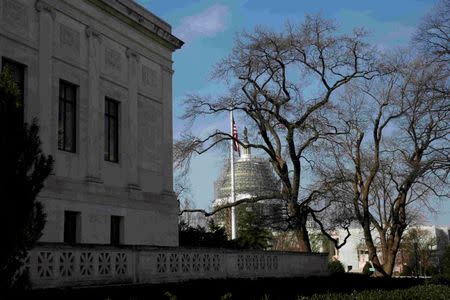Obama touts Supreme Court choice as symbol of fair-mindedness
By Lawrence Hurley WASHINGTON (Reuters) - As valedictorian of his high school class, Merrick Garland let his audience know precisely how he felt when parents unplugged the sound system that day in protest at a classmate's speech against the Vietnam War. He may not necessarily have agreed with the topic or tone but, stirred by the sight of a student’s voice being silenced, Garland abandoned his prepared remarks to deliver instead an impassioned defense of free speech. U.S. President Barack Obama told that story on Wednesday when he nominated Garland, now a 63-year-old judge, on what is often called the second highest court in the land, to a seat on the Supreme Court, the country's highest court. Obama praised what he called Garland's "track record of building consensus as a thoughtful, fair-minded judge who follows the law." Although Garland faces an uphill fight from a Republican-led U.S Senate opposed to anyone the Democratic president nominates, the judge is praised by politicians left and right, even after 19 years on the federal bench. The showdown promises to figure in the campaign for the Nov. 8 U.S. presidential election with Republicans demanding that Obama leave the seat vacant and let his successor, to be sworn in next January, make the selection. Garland, picked to replace conservative Justice Antonin Scalia, who died on Feb. 13, has been a judge on the U.S. Court of Appeals for the District of Columbia Circuit since 1997. His appointment to that court, by Democratic President Bill Clinton, was confirmed by the Senate, 76-23. The bipartisan support is one reason Obama might have for nominating him. In 2010, Republican Senator Orrin Hatch of Utah, a senior member of the Senate Judiciary Committee, described Garland as a "consensus nominee" who would "get a lot of votes." The court has served as a launching pad to the nine-member Supreme Court for several justices including Scalia. Chief judge since 2013, Garland is viewed as a moderate whose legal approach was shaped by a lengthy career as a federal prosecutor. OKLAHOMA CITY BOMBING As a senior Justice Department official, Garland oversaw the prosecution in the 1995 Oklahoma City bombing case in which 168 people, many of them children, were killed. He secured the death penalty for the lead defendant, anti-government militant Timothy McVeigh. Jamie Gorelick, the No. 2 Justice Department official at the time, said in an interview that Garland immediately asked to go to Oklahoma to oversee the case. "When the bomb went off in Oklahoma and we started to see the children being pulled out of the wreckage, Merrick, who had young children at the time, was so moved by this and so angered by it he asked if we could send him out to Oklahoma to help," she said. His background as a prosecutor has shaped his views as a judge, lawyers who practice before the appeals court said. Garland is viewed as less defendant-friendly than other Democratic appointees. But Garland is not afraid to rule against the federal government. In a 2013 case, he was part of a three-judge panel that ruled against the Central Intelligence Agency in its bid to keep documents secret concerning the use of armed drones. In 2008, he wrote on behalf of a three-judge panel when the court ruled in favor of a detainee held at the U.S. naval base at Guantanamo Bay, Cuba. Garland wrote that a U.S. tribunal was wrong to find that detainee Huzaifa Parhat, an ethnic Uighur from China, was an "enemy combatant." Garland grew up in Chicago. His mother was a community volunteer and his father ran a small business. Obama said at the White House that Garland had to sell his comic book collection to help fund his college education. Garland would become the fourth Jewish member of the nine-member court. The other five are Roman Catholics. His education also mirrors those of the other justices. If confirmed, all of the justices would have studied at either Yale or Harvard law school. Garland attended Harvard. (Reporting by Lawrence Hurley; Editing by Howard Goller and Grant McCool)
